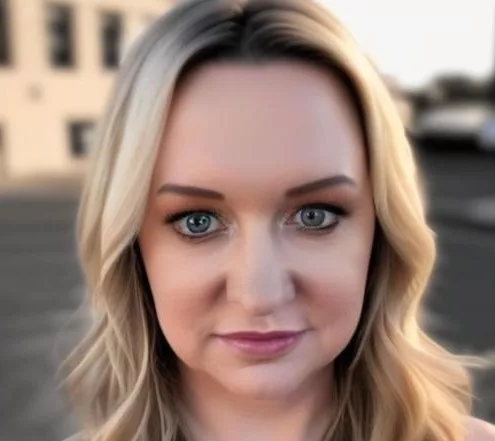Key Takeaways
- Benzodiazepine-Induced Neurological Dysfunction (BIND) is a long-term condition caused by benzodiazepine use or withdrawal.
- Symptoms include low energy, memory loss, and persistent neurological issues.
- Treatment involves gradual tapering, therapy, and supportive care for recovery.
Introduction
Benzodiazepines, commonly called “benzos,” are medications often prescribed to treat anxiety, insomnia, and seizures. While they are effective for short-term use, prolonged use or abrupt discontinuation can lead to serious health issues. One of these is Benzodiazepine-Induced Neurological Dysfunction (BIND), a long-term condition that can significantly impact daily life.
BIND is more than just withdrawal—it’s a collection of symptoms that persist long after stopping benzodiazepines. Understanding this condition is vital for those who have used these medications or are supporting someone through recovery.
What is BIND?
BIND, or Benzodiazepine-Induced Neurological Dysfunction refers to a range of symptoms that occur after someone stops using benzodiazepines. It’s distinct from typical withdrawal symptoms because it can persist for months or even years.
People with BIND experience neurological and emotional challenges that disrupt their quality of life. Common symptoms include:
- Memory issues and concentration difficulties.
- Low energy and fatigue.
- Persistent neurological problems, such as dizziness or muscle tremors.
- Emotional symptoms, including anxiety, depression, or suicidal thoughts.
Unlike standard withdrawal, which usually resolves within weeks, BIND symptoms can linger, making recovery particularly challenging.
Causes and Risk Factors for BIND
Benzodiazepines enhance the effect of a GABA neurotransmitter, which calms the brain and nervous system. Over time, the brain becomes reliant on benzodiazepines to maintain this balance. When the drug is removed, the brain struggles to adjust, leading to symptoms of BIND.
Key Risk Factors
- Long-term use: Prolonged exposure to benzodiazepines increases the likelihood of BIND.
- High dosages: Higher doses strain the brain’s ability to recover.
- Rapid tapering: Abruptly stopping or reducing benzodiazepines too quickly can trigger severe symptoms.
- Individual sensitivity: Some people are more vulnerable to neurological dysfunction due to genetic or health factors.
Benzodiazepines were prescribed initially as safe for short-term use, but their long-term effects, such as BIND, are now better understood.
Symptoms and Long-Term Effects of BIND
BIND symptoms vary widely but often include both physical and emotional challenges.
Physical Symptoms
- Muscle weakness or tremors.
- Dizziness and coordination problems.
- Neurological issues that make daily tasks difficult.
Emotional Symptoms
- Persistent anxiety or depression, even after stopping benzodiazepines.
- Feelings of hopelessness or thoughts of self-harm.
- Difficulty managing stress or emotional regulation.
Impact on Daily Life
The long-term effects of BIND can be devastating. Many individuals find it challenging to work, maintain relationships, or enjoy activities they once loved. The condition often leads to a cycle of frustration and despair, making recovery feel out of reach.
Treatment Options for BIND
Recovering from BIND requires patience, medical guidance, and comprehensive support.
Gradual Tapering
A slow, medically supervised taper is the most effective way to reduce the risk of BIND. This process involves gradually lowering the dose of benzodiazepines over weeks or months, allowing the brain to adjust.
Therapy and Counseling
Therapeutic support helps individuals manage the emotional toll of BIND. Techniques like Cognitive-Behavioral Therapy (CBT) can teach coping strategies and improve emotional regulation.
Supportive Care
- Joining benzodiazepine support groups provides connection and understanding from others facing similar challenges.
- Lifestyle changes like regular exercise and a balanced diet can boost physical and mental recovery.
- Mindfulness practices, like meditation or yoga, can reduce stress and promote relaxation.
Role of Healthcare Providers
Healthcare professionals play a vital role in managing BIND. They monitor symptoms, adjust tapering schedules, and provide resources for mental health support. Collaborative care ensures that individuals receive the help they need at every stage of recovery.
The Role of Awareness and Advocacy
Organizations like the Benzodiazepine Information Coalition and the Alliance for Benzodiazepine Best Practices are leading efforts to increase awareness of BIND. These groups advocate for safer prescribing practices, improved treatment protocols, and greater support for individuals experiencing long-term effects.
Raising awareness is critical to reducing the stigma surrounding benzodiazepine use and empowering individuals to seek help. Advocacy efforts also encourage ongoing research to understand BIND better and develop more effective treatments.
Conclusion
Benzodiazepine-Induced Neurological Dysfunction (BIND) is a complex and challenging condition that requires comprehensive care. Understanding its causes, symptoms, and treatment options can help individuals confidently navigate their recovery journey.
If you or someone you know is struggling with benzodiazepine dependence or BIND, professional support is essential. Call Virtue Recovery Killeen at 855-788-5582 today for compassionate care and expert guidance tailored to your needs.
FAQs About Benzodiazepine-Induced Neurological Dysfunction (BIND)
What is BIND?
BIND, or Benzodiazepine-Induced Neurological Dysfunction refers to long-term symptoms like memory loss, low energy, and neurological issues following benzodiazepine use or withdrawal.
How is BIND Different from Standard Withdrawal?
Unlike standard withdrawal, which resolves in weeks, BIND symptoms can persist for months or years and require specialized care.
What Are BIND Symptoms?
Symptoms include fatigue, memory issues, emotional challenges like anxiety or depression, and neurological dysfunction.
How is BIND Treated?
Treatment involves gradual tapering, therapy, supportive care, and lifestyle changes to manage symptoms and support recovery.
Can BIND Be Prevented?
Avoiding long-term benzodiazepine use and following a slow, supervised tapering process can reduce the risk of BIND.
Does BIND Result in Long-Term Neurological Complications?
Yes, Benzodiazepine-Induced Neurological Dysfunction (BIND) can lead to long-term neurological complications, including memory impairment, cognitive dysfunction, and emotional instability. These effects may persist even after stopping benzodiazepines, as the brain struggles to adapt to the absence of the drug.
What Causes BIND?
BIND is caused by prolonged benzodiazepine use or sudden withdrawal, which disrupts the brain’s natural balance of neurotransmitters like GABA. This disruption can lead to prolonged neurological symptoms as the brain attempts to recover from dependency.
What Occurs When Benzodiazepines Bind to Their Receptors in The Brain?
When benzodiazepines bind to GABA-A receptors in the brain, they enhance the effects of the neurotransmitter GABA, which slows down brain activity. This creates a calming or sedative effect, reducing anxiety and inducing relaxation but also leading to tolerance and dependency with prolonged use.
What is Benzo Belly?
Benzo belly refers to bloating, abdominal discomfort and gastrointestinal issues commonly experienced during benzodiazepine withdrawal. These symptoms result from the body’s adjustment to the absence of the drug and can persist for weeks or months in some individuals.
Resources
https://pmc.ncbi.nlm.nih.gov/articles/PMC10309976/
https://pubmed.ncbi.nlm.nih.gov/37384788/
- About the Author
- Latest Posts
Nicki Lugo is currently employed as Clinical Director at Virtue Recovery Center in Las Vegas. Nicki is a licensed clinical professional counselor (CPC) in the state of Nevada and a licensed associate counselor (LAC) in the state of Arizona. She is also a licensed clinical alcohol and drug counselor (LCADC) in Nevada. Additionally, Nicki has specialized training in treating trauma and is a certified clinical trauma specialist (CCTS).
Nicki has earned a Master of Science degree in Psychology with an emphasis in Behavioral Health from the University of Phoenix and a Master of Science in Professional Counseling from Grand Canyon University. Currently, Nicki is pursuing a Doctor of Philosophy (PhD) in Counseling Education and Supervision at Grand Canyon University. Nicki’s research interests include the use of Positive Psychology interventions with dual diagnosis clients. Nicki hopes to contribute to the body of knowledge in treating substance use disorders.
Nicki’s long-term career goals include advancing in leadership roles within Virtue Recovery Center which is a quickly growing substance use disorder treatment facility. She hopes that one day her research and advocacy will help to save the lives of those who have been affected by substance use. She likes to say that advocacy is her passion and leadership is her superpower.









